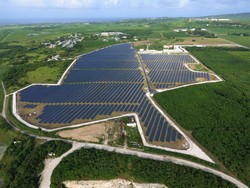Europe and Brazil team up to advance sustainable energy
In the age of global warming and dwindling resources, governments around the world are vying to make energy production more sustainable. A key to achieving this is to develop a long-term energy plan that takes into account all social, economic and environmental considerations. The EU-funded NETEP (NETEP-European-Brazilian network on energy planning) project furthered research and knowledge transfer to develop sustainable energy planning strategies. Bringing together partners from Brazil, Portugal, Spain and the United Kingdom in an interdisciplinary consortium, it worked on supporting future decision-making that is required to advance sustainable energy planning. To achieve this, the project team investigated energy planning approaches in different countries and industrial settings. It conducted knowledge exchange activities among the partners and trained researchers on energy planning and decision-making. The project team then outlined tools and guidelines that can help minimise the negative impacts of energy-related activities. An important part of the project involved research exchanges between Brazil and Europe, with new methodologies and models for sustainable energy planning being tested in both areas. In addition, the project team cross-compared and evaluated energy and environmental indicators, also on both sides of the Atlantic. It then identified the challenges in energy production and supply in Brazil, including the consideration of different technologies and the social aspects involved. NETEP used the multi-scale integrated analysis of societal and ecosystem metabolism approach to understand energy metabolism. It tested different possible solutions in Brazil that could bring economic and social benefits to the country. The research results and findings led to a number of joint publications on the topic. The team also disseminated its findings through conferences, seminars, workshops and relevant events with the aim of furthering knowledge exchange. Strong exchange links have been established that are set to offer effective sustainable energy planning and production models in Latin America, thanks to the new network for energy planning. Once the planning progresses towards implementation, the positive effects on the environment and society will be considerable.







